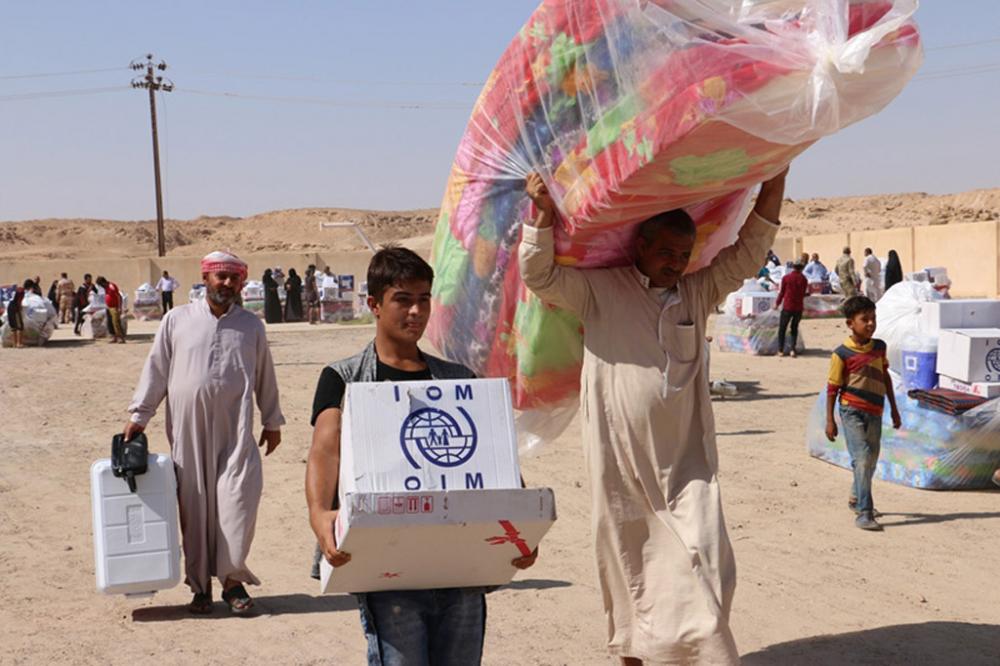JEN | @@justearthnews | 04 Oct 2017

“People newly displaced from their homes often arrive dehydrated, suffering from hunger and thirst,” said Dr. Hamed Amro, in a news release while assisting recently internally displaced people (IDPs) in Rutba.
While military operations to retake west Anbar were officially launched on 19 September, many families – often children, women and older people – walk long distances, some for several days, often in intense heat, to reach safe areas.
“Many require psychosocial support and need medical care. Some have chronic illness and exacerbated conditions due to long term lack of care, and others suffer from malnutrition; we have also received a few trauma cases,” Dr. Amro stressed.
From early January through 2 October, IOM’s Emergency Tracking has identified a total of 54,546 displaced individuals from west Anbar, particularly from Ana, Al Ka’im and Ra’ua districts.
An IOM update shows that some 85 per cent of them transited through Kilo 18 screening site and are displaced within Anbar governorate. By district, Falluja hosts 25,400 individuals, Ramadi another 15,100 and Heet 4,100. At the same time, 4,600 sought safety in the Baghdad governorate and 4,400 in the Erbil governorate.
Since January, 42,886 of the total 54,546 IDPs are currently registered in camps, and 21,660 in out-of-camp locations – with 21,142 in private settings and 528 in critical shelter arrangements.
In Anbar, IOM medical staff are providing immediate assistance to nearly 1,000 IDPs per week through four Mobile Medical Teams working in greatest-need locations, including Falluja city, Ameriyat al Fallujah, Heet and Garma. All are identified in cooperation with Anbar Directorate of Health, part of Iraq’s Ministry of Health.
In the past two weeks, IOM has worked closely with Iraq’s Ministry of Migration and Displacement in distributing 795 non-food item kits, including a plastic cool box and rechargeable fan, to families in Al Habanyah – in addition to 500 kits previously distributed to those not living in camps in Heet. Additional distributions are scheduled for the coming week.
“Life in Al-Ka’im city, under the control of ISIL, was extremely difficult,” said Ahmed, who, according to IOM, was displaced with his family of six to Haditha district, Anbar, in a perilous and long journey. “I hired smugglers to help my wife, four children, my mother and myself to escape. They drove us early morning through unpaved roads. Now we are displaced and living in an unfinished building; we have spent all our limited savings and have no money to cover our needs. The supplies we received on Tuesday will help us get through this difficult time,” Ahmed told IOM staff at an aid distribution.
Photo: UN Migration Agency (IOM) 2017
Source: www.justearthnews.com